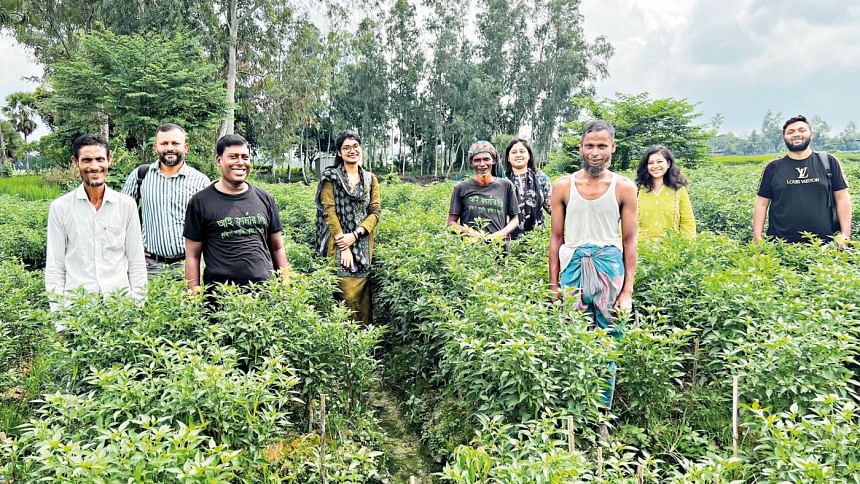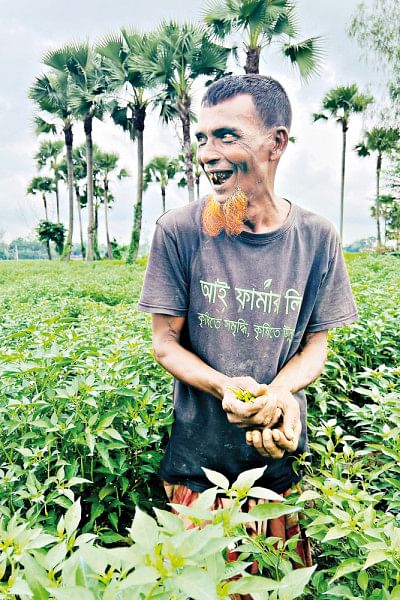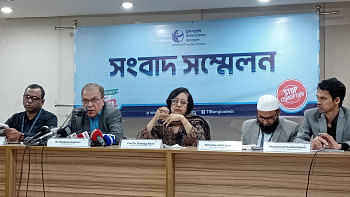iFarmer: The tech-enabled one-stop solution for smallholder farmers

Bangladesh is home to about 16.5 million farmers, constituting about 28% of the country's 170 million population. Agriculture alone contributes to 40% of the national employment, and citizens of all classes are dependent on naturally grown rice, wheat, jute and vegetables for daily sustenance. Most local farmers are smallholders with less than 1 hectare of land which they can use to cultivate crops, but often lack the sufficient means to yield high-quality output or retain enough revenue to properly sustain their livelihoods. Furthermore, over 70% of local farmers do not have access to banking systems or own a personal bank account, which leads to them relying on microfinance firms or loan sharks to pay heavy rates of interest. The absence of proper training or financial assistance also means the farmers are dependent on intermediaries - a process that usually costs more than the farmers can afford to spare.
To aid smallholder farmers and give them a chance to compete in the ever-engaging marketplace, iFarmer offers them both the financial solutions to fill in existing gaps and the means to secure a high-quality production chain. The experts at iFarmer also teach the local farmers how to make more informed decisions regarding market demand and supply, production technique and the use of agricultural inputs such as seed, fertiliser and nutrients to achieve an optimum output while simultaneously improving their personal livelihoods. As agriculture is a major proponent of Bangladesh's GDP, by providing local farmers such invaluable support, iFarmer is making its mark in the development of this country's MSMEs.

Launched as a side project in 2018, iFarmer initially catered to rooftop farms in urban Dhaka and Chittagong. After a few months, the startup realised the infeasibility of such an approach - eventually shifting their focus to the current model: helping the local farmers with the finance, farming knowledge and advice, high-quality agricultural input, access to fair market and technology they require. Their first step was to source low-cost financing for the interested individuals who could choose which farms they want to support and could fund those farms, while being able to track the progress of the farms through the mobile app.
According to iFarmer, the biggest challenge they still face is the low adoption of smartphones and internet usage in rural Bangladeshi areas. While tech usage has certainly increased among people from all walks of life in the last few years, there are still remote communities that aren't as well-equipped with remote technology - which makes regular contact with them difficult. As such, iFarmer uses an assisted model where it has agents also known as field facilitators located in farming communities to keep a steady connection with the local farmers scattered all across the country. This helps smallholder farmers, even those lacking smartphones or mobile internet, stay connected with iFarmer at all times.
The success of iFarmer is in many ways thanks to its two signature apps: Sofol and their newest addition, KriShop. Launched in September 2020, the Sofol app connects verified farmers with the company's field facilitators. The app allows farmers to file financial requests, monitor and track farm updates, conduct farmer KYC and collect other data points which enables iFarmer to create a unique profile for every farmer. The app also helps generate a risk score for the farmers, which eventually helps them to source more financing even from financial institutions such as banks and insurance companies. Since a lot of the farm financing requests come from remote areas with little to no internet connectivity, the app even works offline.

Kri-Shop, the newest addition to iFarmer's app, is a digital platform for input retailers, offering them door-to-door delivery of high-quality materials necessary for their business. Using Kri-Shop, an input retailer can order items from a customised pricing list based on their geographical locations. They can also choose to pay by cash or by credit, and like other delivery apps, can track the delivery as it is on the way. The Kri-Shop app also has a helpline that assists these retailers in the last-minute customisation of orders. The iFarmer field facilitators connect the farmers with this retailer network so that farmers can access the best quality agriculture input.
iFarmer works by providing proper credit facilities to local farmers with the support of financial institutions, thus creating access to high-quality inputs and improving access to marketing as well as information and knowledge. iFarmer is also developing new agriculture insurance products, satellite and sensor-based advisory services and farm mechanisation services - all of which would make iFarmer a true one-stop solution for smallholder farmers.
By relying on iFarmer, the farming-based MSMEs can stop depending on middlemen and traders and thus save up on a lot of long-run costs - which can then be used to improve not only the quality of the yield but also the revenue of the farmers. iFarmer is currently managing a network of over 87,000 farmers and has thus far facilitated over $24 million in financing to local farmers. With 2023 being the company's 5th year in the local market, iFarmer continues to promise an improved livelihood for farmers and better agricultural yield for all Bangladeshis.

 For all latest news, follow The Daily Star's Google News channel.
For all latest news, follow The Daily Star's Google News channel. 



Comments